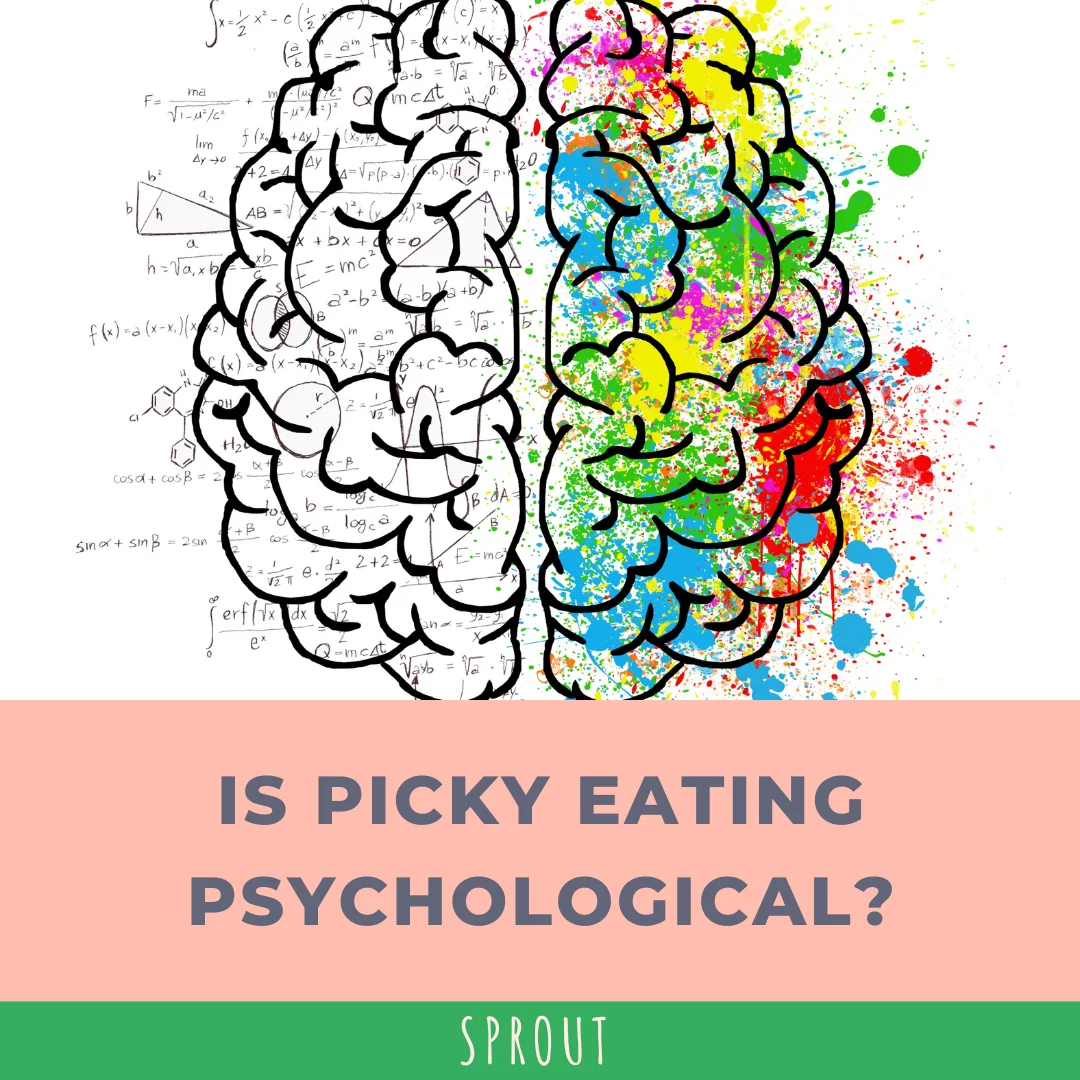Intro: Life events & picky eating
As parents, it's natural to ponder what might be behind your child's picky
eating habits. The truth is, it's rarely the result of a single factor but
often a combination of influences. One aspect that's worth considering is
what else was happening in your child's life around the time picky eating
began to take root. Sometimes, life events can play a part in shaping
children’s eating behaviours. Even if these events weren't the initial
cause, they can still help explain some otherwise confusing changes in your
child's eating patterns now or in the future. In this blog post, we'll shed
some light on how these external factors can impact your child's eating.
What kind of events?
So, what kind of events are we talking about here? Basically anything that felt like a big change or transition for you or your child. Sometimes these kinds of events lead to improvements in eating, other times they may play a part in eating becoming more restricted.
We’re talking about anything from starting nursery or school, going on holiday, starting a new job, moving house, or doing renovations. Of course, illnesses, bugs, or longer-term medical conditions can also have an impact. Some parents found that their child’s eating changed during the pandemic - whether that’s due to changes in family routines or the direct impact of the covid-19 virus. Other events like the arrival of a sibling, or the bereavement of a close relative, or a family separation or divorce can lead to big feelings, as well as changes in family structure and dynamics.
How do events impact picky eating?
So, what does this have to do with eating? Firstly, any of these events may lead to unexpected changes in routine for your little one - and we know just how much lots of fussy eaters like things to be predictable. If your child relies on routines and rituals - like sitting in the same spot at the table, or having their cereal in their blue bowl - then changes in routine may throw them off! Plus if you think about some of these events like travelling, new siblings, or illnesses - there may well be changes in sleep routines and tiredness can be thrown into the mix!
Sometimes during times like these, there is a change to the foods that are available. Perhaps your nursery stocks a different type of bread. Or, you’re holidaying in Spain and the milk tastes different. During lock down it may have been tricky to source some of your child’s go-to-favourites. This can make it all the more challenging for your little one to cope with eating - and for you to plan meals too!
Even positive events that your child looks forward to may bring a certain level of stress, anxiety, or nervousness. You likely know by now, the link between anxiety and eating! Yep - our anxiety response can shut down appetite, and it feels much safer to stick to the familiar than be open to exploring new experiences.
Many events bring a whole load of new sensory experiences and demands. For many fussy eaters, being in busy, noisy environments like school, nursery, or airports, can take its toll on the sensory system and lead to sensory overwhelm. More strong tastes, strange textures, and big smells on top of an already overwhelmed system? No thanks! I’ll stick to my pretzels and breadsticks please!
Depending on the situation, your child may sense some changes in the household - and a change in the mindset of those around them. If they feel that there’s less time for connection, or things feel chaotic and out of their control - then this may show up in their eating. At least what goes in their mouth is one thing they can have some influence over!
Of course, we can’t forget to consider the impact of life events on parents
too. With many big changes like starting a new job, having a baby, moving
house or experiencing grief - you may be feeling drained, distracted, and
preoccupied for a while - and that’s to be expected! You may not have the
time or capacity to do meals exactly as you’d like to, or say no to the
15th request for snacks that day.
What can you do?
Supporting your picky eater during events or times of transition can be a
challenging task, but with a few strategies in mind, you can help create a
more positive experience. First and foremost, remember that you're only
human, and you may be going through something difficult as well as your
child. Not every meal needs to be an opportunity to expand your child’s
diet - it’s ok to keep things simple. Be patient with yourself and your
child.
To ease the anxiety of the unknown, consider preparing for events with
visual schedules or stories, helping your child visualize what to expect.
Planning ahead can go a long way (when an event doesn't surprise you out of
the blue of course!). Research restaurants or event venues ahead of time to
identify food options that your child may accept. Bringing familiar and
accepted snack foods along can provide a safety net if the available
options aren't a hit. If you think you’re crazy to be packing a suitcase
full of snacks when you go abroad - know that you’re far from alone!
Sometimes, it's best to go back to basics and offer foods your child is
comfortable with. Additionally, if possible, try to maintain some elements
of your routine to provide a sense of stability amidst change. These
strategies can make events and transitions less daunting for your picky
eater and help them feel more at ease with unfamiliar food situations.
Summing up
So, to sum up, many life events can disrupt routines, alter food availability, and introduce new sensory experiences, all of which can be unsettling for picky eaters who often thrive on predictability. Even positive events, eagerly anticipated by your child, can bring their own anxieties and stresses, which can affect their appetite. Of course, these events may impact parents too, potentially affecting your capacity to manage mealtimes as you normally would. To support your picky eater during these times, it's crucial to remember that you're only human - so be realistic about what you have capacity for! When possible, plan ahead, research food options, pack familiar snacks as a safety net, and try to keep some elements of your routine consistent.

